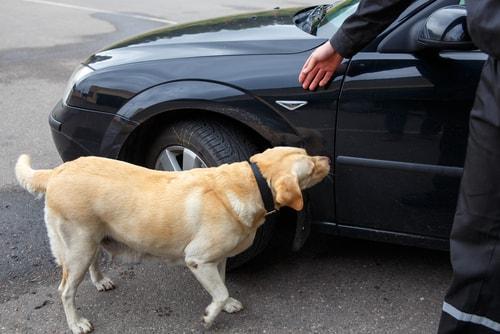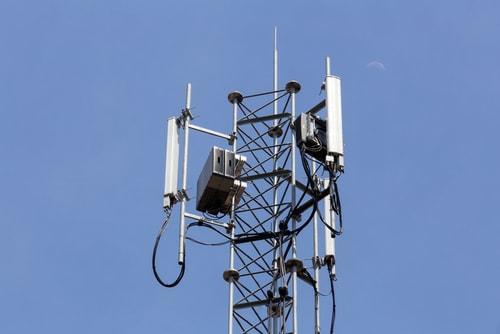Recent Blog Posts
Refusing a BAC Test Could Cost You Your License
 When you get behind the wheel of a car or truck on Illinois roadways, you have certain rights, but you also assume certain responsibilities. While you may not be able to control the actions of other drivers, you have the responsibility to operate your vehicle in a manner that promotes safety to both other individuals and the public at large. Safe driving means that, among other considerations, you are not impaired by alcohol, drugs, or other substances. With that in mind, Illinois law maintains that by exercising your driving privileges, you are granting implied consent to blood-alcohol content (BAC) testing if you are ever arrested on suspicion of driving under the influence. If you are asked to submit to a BAC test including breathalyzer testing, following a DUI arrest, refusing to cooperate will cost you your driving privileges.
When you get behind the wheel of a car or truck on Illinois roadways, you have certain rights, but you also assume certain responsibilities. While you may not be able to control the actions of other drivers, you have the responsibility to operate your vehicle in a manner that promotes safety to both other individuals and the public at large. Safe driving means that, among other considerations, you are not impaired by alcohol, drugs, or other substances. With that in mind, Illinois law maintains that by exercising your driving privileges, you are granting implied consent to blood-alcohol content (BAC) testing if you are ever arrested on suspicion of driving under the influence. If you are asked to submit to a BAC test including breathalyzer testing, following a DUI arrest, refusing to cooperate will cost you your driving privileges.
Separate From Criminal Prosecution
How Texting While Driving Could Lead to License Suspensions
 For many years, safety groups and even cell phone carriers themselves have been reminding drivers to put their phones down while behind the wheel. The public, it seems, is not heeding the warnings. Thanks to a recently-passed law, however, Illinois drivers who insist on using their cell phones illegally could ultimately have their driving privileges suspended, even for a first offense. If you have trouble with cell phone distractions while driving, it is important to know how your life could be affected.
For many years, safety groups and even cell phone carriers themselves have been reminding drivers to put their phones down while behind the wheel. The public, it seems, is not heeding the warnings. Thanks to a recently-passed law, however, Illinois drivers who insist on using their cell phones illegally could ultimately have their driving privileges suspended, even for a first offense. If you have trouble with cell phone distractions while driving, it is important to know how your life could be affected.
Dismal Numbers
A recent survey conducted by State Farm suggests that attitudes regarding cell phone use while driving are quite casual and, in many cases, downright dangerous. More than 80 percent of the survey’s respondents acknowledged that talking on a hand-held phone while driving was dangerous, but half admitted to using a hand-held cell phone behind the wheel. A full 95 percent of participants said that texting while driving was distracting, but 35 percent text anyway.
Reinstating Your Driver’s License After a Suspension
 If you have been charged with drunk driving, reckless driving, or any other moving violation that resulted in the suspension of your driver’s license, your day-to-day life was probably affected quite severely. Not only will a person whose driver’s license is suspended need to make alternative travel plans but also will need to begin the long process of driver’s license reinstatement. There are several things you should know about this process before you begin it, that can make it easier and progress more smoothly. The first is that it is much easier handled with the assistance of a qualified legal professional.
If you have been charged with drunk driving, reckless driving, or any other moving violation that resulted in the suspension of your driver’s license, your day-to-day life was probably affected quite severely. Not only will a person whose driver’s license is suspended need to make alternative travel plans but also will need to begin the long process of driver’s license reinstatement. There are several things you should know about this process before you begin it, that can make it easier and progress more smoothly. The first is that it is much easier handled with the assistance of a qualified legal professional.
Bureaucracy and Fees
Even working with an attorney, driver’s license reinstatement is a costly process often means significant time spent wading through bureaucratic red tape. No matter the offense for which the license was suspended, the driver will first be subject to a $250 reinstatement fee paid to the Secretary of State. A portion of this—$30—goes to the Department of Health and Human Services to help cover the cost of alcohol and substance abuse programs for repeat driving offenders. If you are one of these repeat offenders, the fine is doubled to have your license reinstated; that is, if you have had your license suspended before, again, for any reason, not just alcohol-related charges, you will be subject to a $500 reinstatement fee. In this case, $60 of the fee is allocated for drunk and drugged driving prevention programs.
Understanding Driver’s License Suspensions and Revocations in Illinois
 It is a privilege to operate a motor vehicle on the streets and highways of Illinois. Because it is a privilege and not a right, the state has the authority to suspend or revoke a person’s driving privileges if that person commits certain offenses. In Illinois, this authority is maintained by the Secretary of State. If you currently hold an Illinois driver’s license, it is up to you know what types of infractions that could lead to you losing your ability to drive and how to get your driving privileges back.
It is a privilege to operate a motor vehicle on the streets and highways of Illinois. Because it is a privilege and not a right, the state has the authority to suspend or revoke a person’s driving privileges if that person commits certain offenses. In Illinois, this authority is maintained by the Secretary of State. If you currently hold an Illinois driver’s license, it is up to you know what types of infractions that could lead to you losing your ability to drive and how to get your driving privileges back.
Suspensions vs. Revocations
When your driver’s license is suspended, your ability to drive legally is taken away for a time. Most suspensions last up to one year, but there are cases in which a suspension may be longer. In some cases, your driving privileges may be suspended until you pay certain fines or meet other obligations. It is understood that you will generally have your driving privileges restored once the suspension is lifted. You will likely need to pay a reinstatement fee.
Driving Relief Programs in Illinois

If you have had your driving privileges suspended or revoked as the result of a conviction on charges of driving under the influence (DUI), your life can be greatly affected. You may struggle with keeping your job, continuing your education, and even caring for family members in need. Depending upon the circumstances of your case, however, you may be eligible for partial relief in the form of a Monitoring Device Driving Permit or a Restricted Driving Permit, either of which may allow you to resume some of your normal activities.
Monitoring Device Driving Permits
The state of Illinois offers two different forms of driving relief for those whose driving privileges have been suspended or revoked related to a DUI. The first is called a Monitoring Device Driving Permit, or MDDP, which is available for almost all first-time offenders during the period of statutory summary suspension for failing or refusing a chemical test for blood alcohol content. The MDDP allows a driver to operate a vehicle at any time, in any place, as long the vehicle is properly equipped with a Breath Alcohol Ignition Interlock Device (BAIID).
The Sneaky Methods Thieves Are Using to Shoplift
 Retail theft costs American retailers over $40 billion each year in lost revenue. Stores must constantly be on the lookout for individuals who attempt to conceal products and leave the store without paying for them. Even with advances in security systems and vigilant loss prevention officers carefully observing patrons, stores continue to see increases in shoplifting.
Retail theft costs American retailers over $40 billion each year in lost revenue. Stores must constantly be on the lookout for individuals who attempt to conceal products and leave the store without paying for them. Even with advances in security systems and vigilant loss prevention officers carefully observing patrons, stores continue to see increases in shoplifting.
Each year, more and more individuals are apprehended for stealing. Some retailers blame the increase in organized retail crime for the increase in theft losses each year. Many instances of shoplifting are not carried out by individuals but instead organized teams of thieves who work together to steal items from the store and sell them. Another method of shoplifting which is quickly gaining popularity is the use of "booster bags" which are designed to beat the in-store security systems. If you have attempted this or other methods of retail theft, you may face serious punitive consequences.
A Police Officer Found Drugs in My Vehicle. Now What?
 As per the Fourth Amendment to the United States Constitution, police cannot search a person’s private residence without a search warrant issued by a judge. So, if police believe you have illegal items in your home, that suspicion alone is usually not enough to merit a legal search. However, the laws which protect citizens’ privacy are quite different when it comes to motor vehicles. Because we operate vehicles on public roads, police have much more freedom when it comes to searching a person’s car or truck. If police have searched your vehicle and discovered marijuana, amphetamines, opioids, or other illegal drugs, you may be facing harsh criminal consequences.
As per the Fourth Amendment to the United States Constitution, police cannot search a person’s private residence without a search warrant issued by a judge. So, if police believe you have illegal items in your home, that suspicion alone is usually not enough to merit a legal search. However, the laws which protect citizens’ privacy are quite different when it comes to motor vehicles. Because we operate vehicles on public roads, police have much more freedom when it comes to searching a person’s car or truck. If police have searched your vehicle and discovered marijuana, amphetamines, opioids, or other illegal drugs, you may be facing harsh criminal consequences.
When Can Police Legally Search a Vehicle?
Although police have more authority to search motor vehicles than homes, they are still required to follow certain rules regarding vehicle searches. An officer cannot stop and search a vehicle without a reasonable cause for doing so.
Illinois Governor Signs "Red Flag" Gun Law
 Over the last several years, there has been no shortage of tragedies involving gun violence. Mass shootings in Connecticut, Colorado, Florida, and Nevada have raised the public consciousness regarding the availability of firearms and the associated rights promised by the Second Amendment to the U.S. Constitution.
Over the last several years, there has been no shortage of tragedies involving gun violence. Mass shootings in Connecticut, Colorado, Florida, and Nevada have raised the public consciousness regarding the availability of firearms and the associated rights promised by the Second Amendment to the U.S. Constitution.
In the wake of these terrible events, many states have passed so-called "red flag" laws that allow authorities to temporarily seize guns from individuals whom the courts have determined pose a threat to themselves or others. Earlier this month, Illinois became the 13th state to pass such a measure as Governor Bruce Rauner signed House Bill 2353 into law.
Firearms Restraining Order Act
The new law is called the Firearms Restraining Order Act, and it created a new type of specific restraining order for preventing a person from possessing, purchasing, or handling a firearm. The law also established a process for those who fear that a loved one may present a danger to themselves or others to take action.
Defense Lawyers Group Raises Questions About the Trial Penalty
 Nearly every person or entity involved with the American criminal justice system is aware of the existence of the so-called "trial penalty." This penalty refers to the harsher sentences imposed on criminal defendants who exercise their right to a trial compared to those who accept plea bargains. There is little question that some form of a trial penalty is acceptable, but a new report from a national organization of defense attorneys suggests that the differences in sentences have become so severe that the penalty is threatening the right to a trial guaranteed by the Constitution’s Sixth Amendment.
Nearly every person or entity involved with the American criminal justice system is aware of the existence of the so-called "trial penalty." This penalty refers to the harsher sentences imposed on criminal defendants who exercise their right to a trial compared to those who accept plea bargains. There is little question that some form of a trial penalty is acceptable, but a new report from a national organization of defense attorneys suggests that the differences in sentences have become so severe that the penalty is threatening the right to a trial guaranteed by the Constitution’s Sixth Amendment.
The Sixth Amendment
The Sixth Amendment to the U.S. Constitution promises, "In all criminal prosecutions, the accused shall enjoy the right to a speedy and public trial, by an impartial jury…" The amendment also guarantees a defendant the right to face the witnesses against him or her, as well that the right to legal counsel.
Supreme Court Rules Warrants Needed for Cell Phone Location Data
 In today’s digitally connected world, information is everywhere. If you need an answer to a question, a few taps on your smartphone can allow you to run a Google search. If you want to contact your friend, you can send him or her an instant message or even connect through video chat instantaneously. The stream of data, however, goes in both directions. Any time that your phone is turned on, it is sending signals to nearby cell towers about your location and whether you are available to receive a call.
In today’s digitally connected world, information is everywhere. If you need an answer to a question, a few taps on your smartphone can allow you to run a Google search. If you want to contact your friend, you can send him or her an instant message or even connect through video chat instantaneously. The stream of data, however, goes in both directions. Any time that your phone is turned on, it is sending signals to nearby cell towers about your location and whether you are available to receive a call.
Over the last few years, law enforcement agencies have been able to gather information from these signals with little more than a request to the wireless service providers, but a new ruling by the U.S. Supreme Court says that a warrant must be obtained first.
The Case in Question
In 2013, a Detroit man was convicted on several charges related to armed robberies that had taken place in and around the city. The prosecution’s case was helped by cell phone evidence gathered by the Federal Bureau of Investigation (FBI) from the defendant’s cell phone service carrier. Using the Stored Communication Act, government agents needed only to show the wireless carrier that the information they were requesting was relevant to an ongoing investigation. The government did not believe that a warrant was necessary because they were not pulling the content of calls or messages. Instead, they were looking for location points.







